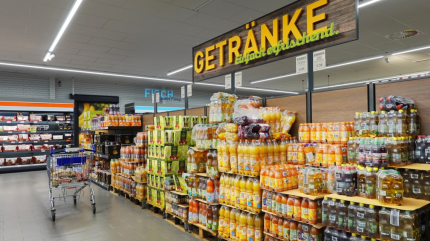
Consumption of fruit juices and fruit nectars fell by more than 7% in 2023, data released by the country’s local trade association shows.
Per capita consumption in Germany decreased by two litres to 26 litres last year, according to the Association of the German Fruit Juice Industry (VdF).
The trade body recorded a “slight” decline in demand for orange juice in 2023, while apple juice experienced “constant” demand. Apple juice sales were driven by “regional orchard juices”, the VdF said.
However, orange juice remains the most popular at 6.8 litres per capita, with apple juice in second at 5.1 litres.
Industry sales increased from €3.25bn ($3.51bn) to €3.35bn last year, according to the VdF.
Global orange juice prices have soared in recent months, spiking again in April after a brief reprieve at the start of the year.

US Tariffs are shifting - will you react or anticipate?
Don’t let policy changes catch you off guard. Stay proactive with real-time data and expert analysis.
By GlobalDataFollowing a similar trend in other “soft commodities” like coffee and cocoa, severe weather conditions in the main growing countries are causing a production shortage while consumer demand continues to thin, leaving orange juice prices firmly sat at record highs.
The VdF said "fluctuations" in harvests due to weather conditions and their impact on the availability of raw materials "are part of the normal business operations of fruit juice manufacturers".
However, it has warned that the “extreme weather conditions” experienced in recent years have led to the “total failure” of individual types of fruit as well as “exponential cost increases along the entire value chain”.
“Despite these numerous challenges, the aim of fruit juice manufacturers in Germany is to continue to offer consumers a wide range of high-quality and diverse products through innovation and adaptability,” the VdF said.
“In view of the sustainable restructuring of agriculture and the significant cost increases for raw materials and logistics, which not only affect the fruit juice industry, we in Germany will also have to live with the reality of higher prices in the future.”
The trade body added manufacturers could “adapt” their product ranges by reducing the proportion of fruit juice and expanding the product selection to “include cheaper alternatives”.


